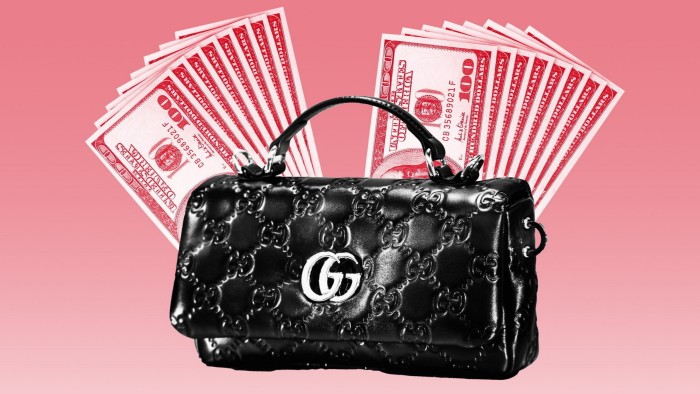The Impact of Tariffs on the Luxury Goods Market
Donald Trump’s trade policies have significantly altered expectations for a rebound in the U.S. luxury market this year, particularly as tariffs threaten to depress demand for high-end products such as handbags and watches.
Trade Tensions Impacting Consumer Confidence
The ongoing trade dispute between the U.S. and China, two of the largest players driving global luxury consumption, has escalated with both nations imposing reciprocal tariffs. This environment of uncertainty poses a substantial risk to consumer confidence in these leading economies.
Revised Growth Forecasts
In light of these developments, analysts have revised their growth forecasts for the luxury sector. Bernstein recently projected a 2% decline in revenues for 2025, a significant shift from earlier predictions that anticipated a 5% growth, reflecting the increased probability of a global economic downturn.
Timelines for Recovery
As a banking industry expert highlighted, “Our base case now is any pick-up in luxury is pushed into 2026.” This statement underscores the prevailing pessimism regarding the market’s short-term recovery.
Market Disruptions from Policy Changes
This past weekend, while technology firms were briefly relieved from heightened tariffs on Chinese products, the administration’s decision to implement a new set of duties on consumer electronics indicates the erratic nature of current policy decisions. Despite potential adjustments by Trump, it is noted that “a lot of the damage is already done,” according to industry professionals.
The Luxury Earnings Landscape
As luxury earnings reports come up, LVMH, led by Bernard Arnault, is at the forefront. In light of the prevailing trends, Barclays anticipates a 1% decline in organic sales within LVMH’s crucial fashion and leather goods segments during the first quarter, with overall group sales expected to remain flat compared to last year.
Long-term Effects of Uncertainty
Bernstein analyst Luca Solca reiterated his grim outlook for the sector. He lamented the impossibility of returning to previous performance levels, stating, “We have material damage in the financial markets and in the economy as a consequence of erratic policy announcements.” This notion of long-standing damage emphasizes that “loss of confidence is long-lasting,” and economic uncertainty is detrimental to consumer behavior.
The Broader Economic Context
After a period of lavish spending during the pandemic, the luxury market now confronts declining demand as middle-class consumers tighten their budgets and the Chinese economy stumbles. These economic pressures are compounded by Trump’s aggressive tariff policies, particularly targeting China, which is a vital market for luxury brands. Currently, U.S. tariffs on Chinese goods have escalated to 145%, while China has reciprocated with tariffs of 125% on U.S. imports.
Manufacturing and Tariff Challenges
The majority of luxury goods are manufactured in France and Italy, with high-end watches produced in Switzerland. These countries also face tariffs of 10% from the U.S., which complicates the pricing frameworks for luxury companies. Rapid changes in duty rates are creating operational chaos, as exemplified by a company executive’s account of adjusting shipment duty rates multiple times within just a week.
Effects on Consumer Spending
For luxury brands, while current tariffs may present manageable challenges compared to other sectors, the more pivotal hurdle is fostering consumer confidence. Following a severe downturn in global stock markets, many luxury consumers may be reconsidering their purchasing decisions. Bruno Pavlovsky, Chanel’s president, noted that fluctuations in the stock market can serve as a predictor of business performance in luxury retail settings.
Future Trends in the Luxury Sector
Looking ahead, HSBC’s Erwan Rambourg has raised concerns over the prospects for luxury due to diminished wealth and consumer spending capability in the U.S. His analysis suggests that this year will see a contraction in organic sales by 5%, down from earlier projections of stability compared to the previous year.
Brand Performances Amid Challenges
Despite these challenges, some brands maintain positive forecasts. Hermès, renowned for its luxury Birkin bags, is projected to see an 8% sales increase in the first quarter. In contrast, Gucci, Kering’s flagship brand, is expected to experience a 25% decline in sales, signaling the potential for significant downturns within the group.


